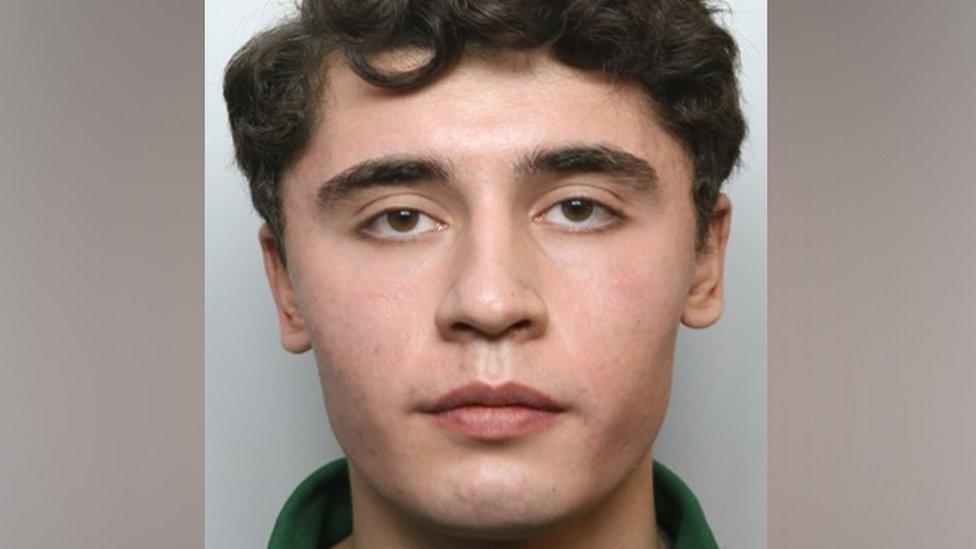Daniel Khalife: Terror suspect may have used bedsheet to escape, court hears
- Published

Terror suspect Daniel Khalife may have used bedsheets in his escape from Wandsworth prison, a court hearing has been told.
The ex-soldier, 21, attended Westminster Magistrates' Court after four days on the run last week.
He was arrested in Northolt in London on Saturday. He is accused of escaping from lawful custody.
Deputy chief magistrate Tan Ikram remanded him in custody to appear at the Old Bailey on 29 September.
Meanwhile, Commander Dominic Murphy, the Met Police's head of Counter Terrorism Command, said the way the public had helped to find Mr Khalife was "really quite astonishing." He suggested to ┤¾¤¾┤½├¢ News that finding the former soldier without the public's aid would have been impossible.
Mr Khalife is accused of escaping on 6 September while on remand at HMP Wandsworth by strapping himself under a food delivery truck using a material which was "made from bedsheets with clips at each end".
Prosecutor Thomas Williams said that a plain-clothed police officer was told Mr Khalife had been seen on a bicycle on a canal towpath in Rowdell Road.
The officer drove to the towpath and saw the former soldier on a bike. He drew his Taser and gave Mr Khalife a warning to get off, which he did.
Mr Khalife was then arrested.
The court heard he had a phone, a bag containing cash and receipts which suggested he had bought clothes and food and possibly topped up a mobile phone.
Daniel Khalife appeared in court flanked by two police officers
Mr Khalife, wearing a police-issued tracksuit, spoke to confirm his name and date of birth during the eight-minute hearing. His address was given as "of no fixed abode".
He was brought to court in an armoured police van accompanied by two unmarked cars.
In the dock he was flanked by two police officers and one dock officer.
His barrister Gul Nawaz Hussain KC said there was no indication of plea at this stage.
Mr Khalife was in Wandsworth prison awaiting trial on charges of allegedly obtaining information useful to the enemy, eliciting information about members of the armed forces contrary to the Terrorism Act 2000, and perpetrating a bomb hoax.
Daniel Khalife arrived in an armoured van
Prosecutor Mr Williams said the trial on those charges had been due to start on 13 November.
The Met's Mr Murphy compared the incident to previous counter-terrorism manhunts he had been involved in and suggested this case was "probably the biggest" in terms of the significance of the public's impact.
"I'm trying to find one young man, a pretty resourceful young man, who's escaped from prison in a city of more than 9 million people," he explained. "There is no way to do that without the public.
"I don't think we could have done it without a public, certainly not in that time.
"It's been an incredibly impressive thing."
Additional reporting by Andre Rhoden-Paul and Harrison Jones